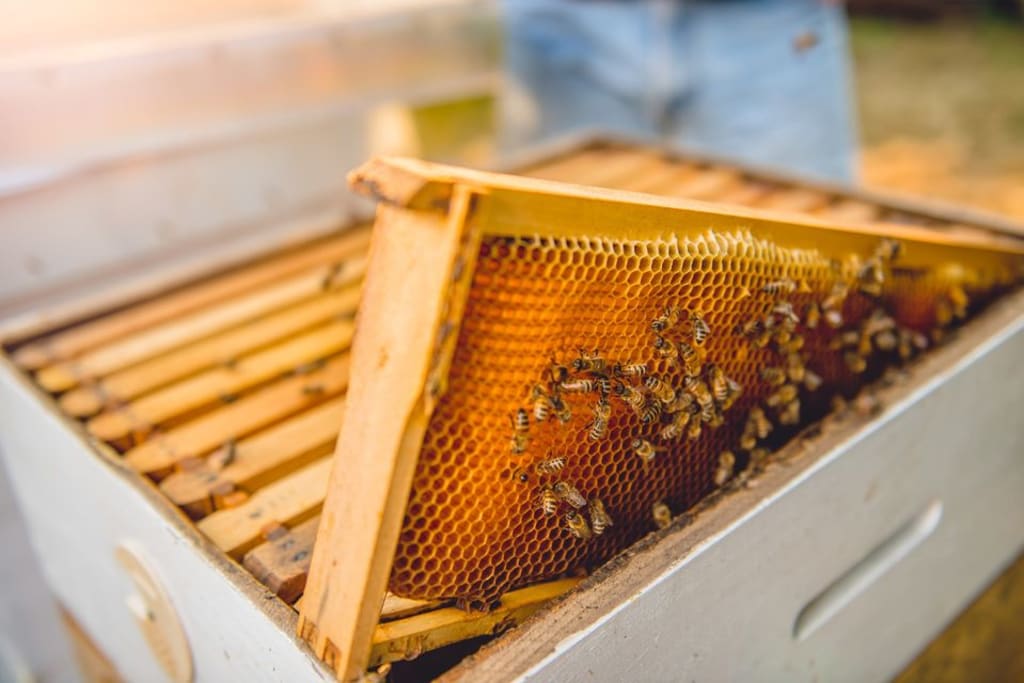Fascinating Insights into the World of Beekeeping
Must Read

Imagine a world without the sweet taste of honey or the buzz of bees pollinating flowers. Beekeeping, an ancient practice, offers insights into the delicate balance of hive dynamics, the art of honey extraction, and its impact on environmental conservation. This article delves into three key aspects of beekeeping, revealing the fascinating world of these industrious insects.
The Art of Hive Management
Beekeeping is an ancient practice that requires a deep understanding of hive dynamics. At the heart of every hive is the queen bee, responsible for laying eggs and maintaining the colony's population. Surrounding her are the worker bees, who tirelessly collect nectar, make honey, and care for the young. Drones, on the other hand, are male bees whose sole purpose is to mate with the queen.
Managing a hive involves various techniques to ensure its health and productivity. Beekeepers must consider seasonal changes, as different times of the year require different approaches to hive management. Preventing and treating diseases is also crucial, as sick bees can quickly spread illness throughout the colony. Additionally, beekeepers must be prepared to manage swarms, ensuring that the bees relocate safely without causing harm.
Harvesting Honey: Nature's Golden Treasure
One of the most rewarding aspects of beekeeping is harvesting honey. The process begins with the careful extraction of honeycomb frames from the hive. Specialized tools and equipment are used to remove the honeycomb without damaging it, ensuring that the bees can continue their work undisturbed.
Once the honeycomb is removed, the honey extraction process begins. The honey is carefully extracted from the comb and filtered to remove any impurities. It is then bottled and sealed, ready to be enjoyed.
Beekeeping and Environmental Conservation
Beyond the sweet reward of honey, beekeeping plays a crucial role in environmental conservation. Bees are essential pollinators, responsible for pollinating a significant portion of the world's food crops. Without bees, many plants would not be able to reproduce, leading to a decline in biodiversity and food scarcity.
To support bee populations, beekeepers must practice sustainable beekeeping. This includes using organic methods to care for the bees and planting bee-friendly flowers and plants. By supporting beekeeping communities and conservation efforts, beekeepers can help ensure the survival of these vital pollinators for generations to come.
Innovations in Beekeeping Technology
As technology advances, so does the field of beekeeping. Modern beekeepers are now using a variety of technological tools to improve their efficiency and the health of their hives. For example, remote monitoring systems can track temperature, humidity, and hive activity, allowing beekeepers to respond promptly to any abnormal conditions. Additionally, apps and software are available that help manage hive records, track queen productivity, and schedule tasks. These innovations not only make beekeeping more manageable but also increase the sustainability of the practice by reducing the need for frequent disturbances in the hives.
Educational Outreach and Community Involvement
Beekeeping also has a significant role in education and community development. Many beekeepers engage with local schools and community groups to raise awareness about the importance of bees in our ecosystem. Workshops and beekeeping courses offered by local associations not only teach the practical aspects of beekeeping but also emphasize the environmental impact. These programs can inspire future generations to take up beekeeping or support conservation efforts. Furthermore, community involvement often leads to increased support for local beekeeping initiatives, enhancing the resilience of the local bee populations and ecosystems.
Conclusion
In conclusion, beekeeping is not just about harvesting honey; it's about understanding and supporting a vital part of our ecosystem. By mastering hive management, harvesting honey, and promoting environmental conservation, beekeepers play a crucial role in preserving the natural world. Embracing the art of beekeeping is not only rewarding but also essential for the future of our planet.





Comments
There are no comments for this story
Be the first to respond and start the conversation.